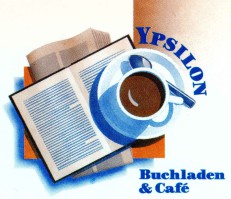Lesung und musikalische Darbietung mit Werken von Lai Ho
(Autor aus Taiwan, 1894-1943)
- From Lai Ho to the Sunflower Movement: The Awakening of "Taiwan -Youth" -
-
Sonntag, 13. Dezember, 15:00-18;00
- Veranstalter:Taiwan Verein Deutschland e.V. (Bezirk Mitte/Süd)
- Unterstützt von Deutsch-Taiwanesischer Frauenverein Frankfurt e.V.
- Programmablauf
15:00-15:45 Vortrag
“From Lai Ho to the Sunflower Movement: The Awakening of "Taiwan Youth"
Prof. Chen Wan-hi
Ms. Chou Fu-Yi (Executive Director of the Lai Ho Culture and Education Foundation)
15:45-16:15 Q&A
16:15-16:30 Pause
16:30-17:15 Lesung
Dr. Lai Shou-Yen (Grandson of Lai Ho, representative of the Lai family )
Chang Tsai-Fang (Lai Ho Museum staff, curator)
Chee Chiun Sam (National Museum of Taiwan Literature, NMTL)
17:15-18:00 Sining and Talking about Lai Ho
Dr. Wu Yi-Jui (member of Tau-lau-jiat New Folk Band)
Perfomance includes: Moon, Romantische Erinnerung, Liebe, Das Lied der Liebe, River
- Autor
Lai Ho (1894-1943), praised as being the Father of Taiwan’s New Literature, expressed in his writings the unfair treatment to the Taiwanese under the Japanese colonization, the awareness and the protest spirit of the weak nation, which are all significant to explain why Lai Ho, the writer and his writings have achieved immortality and become canon. After World War II, Taiwan had been under martial law over a long period of time, which interrupts the inheritance of Taiwan history and culture. After mid-1970s, with the wave of democratization in Taiwan, Lai Ho is gradually known, read by the Taiwan youth, and related research works and publishing projects increased. The vigorous folk forces in pursuit of Taiwan Literature gave fresh impetus to the establishment of Lai Ho Foundation in 1994, leading the youth to acquire the knowledge of Taiwan history and culture, and to equip with clearer subjectivity and critical thinking in facing the social reality and making choice for their future. Furthermore, the Foundation enlightens Taiwan Youth to disseminate the literature and spirit of Lai Ho via literary music and cultural action, and gives impetus to social transformation and the consolidation of democracy in Taiwan through cultural intervention.
This December, Lai Ho Culture and Education Foundation, the representative of the Lai Ho family, and Tau-lau-jiat New Folk Band are invited to Germany for Taiwan Literature academic exchange. They will discourse and sing Taiwan Literature, to expound Lai Ho’s spirit how to enlighten Taiwan Youth and his significance in modern times.
- Vortragende:
Prof. Chen Wan-hi
Professor of Taiwan Literature at National Tsing Hua University, chairman of the board of the Lai Ho Culture and Education Foundation
Chou Fu-Yi
Executive Director of the Lai Ho Culture and Education Foundation, studying in the History Department at National Taiwan University for Ph.D. degree, specialty is Taiwan social movement and cultural history, participating in the peasant movement and the cultural movement, the Sunflower Movement organizer
Chee Chiun Sam
National Museum of Taiwan Literature, NMTL
Chang Tsai-Fang
Lai Ho Museum staff, curator/tour guide in the Lai Ho museum and managing secretary of the Lai Ho Foundation
Tau-lau-jiat New Folk Band commemorate the works and legacy of this humanist and expound Lai Ho significance in modern times.
Dr. Wu Yi-Jui
Harry Yi-Jui Wu is Assistant Professor at Medical Ethics and Humanities Unit, Li KaShing Faculty of Medicine, The University of Hong Kong. He received his medical degree in Taiwan in 2004. Before pursuing his career in humanities, he briefly worked at Mackay Memorial Hospital in Taipei as a resident doctor in psychiatry. He obtained his DPhil in history of medicine at the University of Oxford in 2012. Before joining HKU, he worked at Nanyang Technological University in Singapore for two years. Harry's research deals with the humanitarian intervention of psychiatric sciences regarding the aftermaths of the Second World War and the anxiety surrounding the indeterminable time of postwar worldwide rehabilitation. Apart from preparing his first monograph on the social history of international classification of psychiatric diagnoses, he is now conducting several projects on mental health, death and dying and other medically related agenda in Chinese speaking worlds. As an amateur writer, Harry also publishes his literary works including poetry, essays and ballads.


